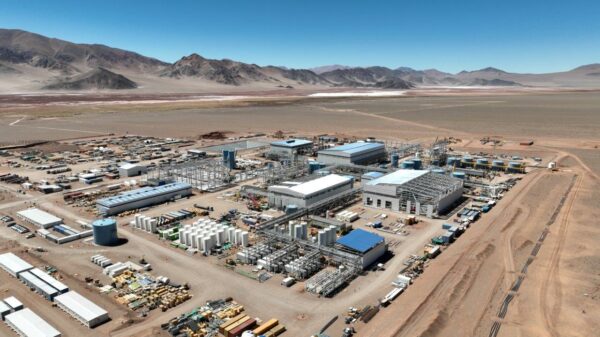Researchers from Pennsylvania State University say they have developed an efficient new means of extracting rare earth elements by mimicking mussels and their ability to stick to surfaces underwater.
The school’s Materials Research Institute announced the discovery and development of the mussel-inspired nanocellulose coating (MINC) on Wednesday. The researchers say it has a remarkable and surprising ability to recover rare earth elements utilizing a low amount of energy.
They say the coating they’ve developed is the equivalent of what a magnet is to iron and that it pulls rare earth elements like neodymium out of the water even when it is only present in low concentrations.
Their research focused on extracting neodymium, a rare earth element needed for electric vehicles, magnets, wind turbines, medical devices and other technology. Due to the element’s rarity, miners often have to resort to extracting it from secondary sources like industrial wastewater, which can be an inefficient and energy-intensive process.
“The MINC approach offers a sustainable and eco-friendly alternative to conventional extraction methods, minimizing the environmental footprint and contributing to the long-term availability of critical elements,” said the lead researcher Amir Sheikhi.

Amir Sheikhi, lead researcher (left); Dawson Alexander, co-author of paper on the MINC (right). Photo via Penn State University
Read more: NevGold Ptarmigan subsidiary gets five BC exploration assets in option agreement
Read more: NevGold shareholders approve GoldMining as new ‘control person’ at special meeting
Sheikhi says conventional extraction techniques use toxic chemicals like kerosene to purify neodymium.
“The limited global supply of neodymium and the environmental impact of current extraction methods necessitate the development of eco-friendly and sustainable approaches for rare earth element recovery,” said Sheikhi.
The coating allows those extracting the rare earth material to avoid recovering unwanted elements like calcium and sodium.
“The MINC presented in this study offers improved selectivity and capacity for neodymium removal, overcoming limitations of previous methods,” he added.
In time, Sheikhi says society will benefit from their discovery and the inherently improved availability of neodymium through its utilization.

1.5 grams of neodymium. Photo by Tobias Meints via Wikimedia Commons
Penn State’s Materials Research Institute is funded by the United States Department of Energy, the Department of Defense, the National Institutes of Health and other organizations.
Researchers at Penn State found a mechanism using a bacterial protein that can separate rare earth elements faster and more efficiently than toxic chemicals can in May as well.
rowan@mugglehead.com














